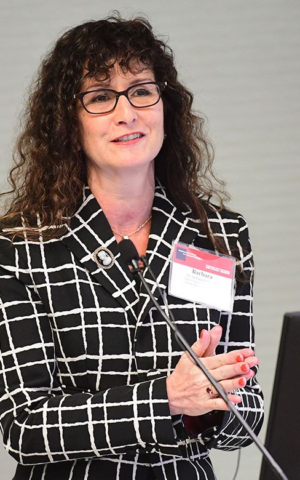Psychedelics Get New Respect from Medical Researchers
Research on psychedelics is an important part of a national effort to treat chronic PTSD and depression.

After decades of being demonized for their recreational and mind-blowing properties, psychedelics are beginning to be accepted as important medications for a number of illnesses.
In June, the Food and Drug Administration took a major step forward in their approval process for new psychedelic drugs. For the first time ever, they issued a draft of new guidelines for researchers to use in designing new trials for the mind altering substances that have shown promise in treating several conditions.
In announcing the decision, the FDA official who oversees the FDA’s evaluation of psychiatric drugs, Tiffany Farchione, described psychedelics as showing “initial promise as potential treatments for anxiety and substance use disorders.”

Researchers at Emory University Brain Health Center have worked with the FDA to evaluate a psychedelic, MDMA, or as it is more commonly known, Ecstasy. It is seen as a potential breakthrough treatment for military veterans and others with severe post-traumatic stress disorder, or PTSD.
The encouraging results have helped to create bi-partisan support for new legislation in Washington. Texas Republican congressman Dan Crenshaw has signed up 13 co-sponsors of a bill that would provide $75 million in grants to study psychedelics as treatment for active military personnel; six of the sponsors are Democrats and seven are Republicans.
The director of Emory Healthcare’s Veterans Program, Barbara Rothbaum, who has participated in research using MDMA with veterans, has been impressed with the results she’s seen.

“MDMA helps with feelings of closeness to others. It enhances feelings of empathy and well-being by reducing activity in the amygdala, which is often where we respond to anger and fear stimuli. It reduces anxiety without inhibiting the ability to experience or reflect upon those intense emotions. So, we think that that’s a big result for those with PTSD who are dealing with the memory of their trauma.”
Atlanta is also the site of another drug trial by Compass Pathways, a $400 million mental health care company, that is designed to investigate the use of the psychedelic, psilocybin. The naturally occurring compound is found in 200 kinds of mushrooms. Compass is in the midst of organizing a stage 3 FDA trial of the drug in Atlanta as a treatment for medication-resistant depression, on its own and with existing anti-depression medications.
Both MDMA and psilocybin have been granted “breakthrough therapy” status by the FDA which means that the drugs have been shown to have significant potential and are being expedited through the FDA’s bureaucratic process.
For those not willing to wait for the results of the clinical trials, Oregon this year became the first state to legalize the use of psilocybin. In Colorado, voters gave approval in 2022 to an initiative to allow for the cultivation and use of psilocybin mushrooms.
Australia just became the first major nation to legally authorize the use of psychedelics by physicians to treat a number of mental health conditions. That action took effect July 1.

The flurry of activity around the use of psychedelics was celebrated last month during a four day gathering in Denver, in what was described as the “largest psychedelic conference in history.” The organizers of the conference, which attracted more than 11,000 people, were the Multidisciplinary Association for Psychedelic Studies, or MAPS as it is more commonly known.
The non-profit organization was founded by Rick Doblin, whose family had its roots in the Jewish shtetls of Eastern Europe. Since its founding in 1986, he has taken the organization from a one-man project to an international pharmaceutical development company with nearly 200 full-time staff. MAPS has designed or sponsored psychedelic drug development research in more than a dozen countries and has raised more than $140 million in grants and donations.
During the Denver conference, the organization announced a $5 million gift by Steve Cohen through his family foundation. The donation will support the organization’s research efforts,
Both MDMA and psilocybin have been granted ‘breakthrough therapy’ status by the FDA which means that the drugs have been shown to have significant potential and are being expedited through the FDA’s bureaucratic process.
Cohen, a wealthy Wall Street hedge fund manager and the owner of the New York Mets, has given over $60 million in grants to support psychedelic drug trials through his Psychedelic Research and Health Initiative. In making this latest donation, he reiterated his belief that the drugs could open up new possibilities for large numbers of people.
“Millions of Americans, including our veterans and first responders, suffer from PTSD and other mental health conditions that affect their quality of life.
Psychedelic compounds represent a new opportunity to address these often treatment-resistant conditions and bring hope to patients.”
There is hope among those who support the acceptance of the first psychedelic-assisted therapies that the drugs could receive formal approval by the FDA and regulatory authorities in Canada and Israel where trials have also taken place.
- Senior Living
- Health and Wellness
- Bob Bahr
- psychedelics
- Food and Drug Administration
- Tiffany Farchione
- Emory University Brain Health Center
- MDMA
- Ecstasy
- PTSD
- Dan Crenshaw
- Veterans Program
- Barbara Rothbaum
- Empathy
- amygdala
- Compass Pathways
- Multidisciplinary Association for Psychedelic Studies
- Rick Doblin
- Steve Cohen
- Psychedelic Research and Health Initiative



comments